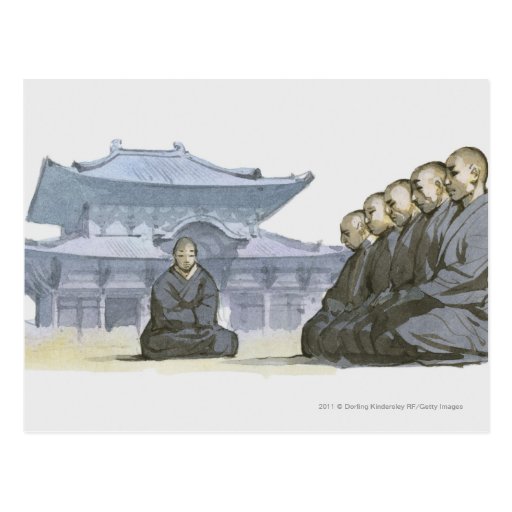An article showed up in my Facebook feed recently. It's about a seminar that was held recently, and the formation of a study panel meant to address concerns about the cost, purpose, and future of Buddhist funerals in Japan. Apparently, services are crazy expensive, and a lot of people are skipping them altogether:
There's more--if anyone wants to read it, the whole article is here.
I find it . . . interesting that a corporation can dictate monetary offerings. (And I'm glad to see priests pushing back and trying to improve the situation.)
Jundo . . Taigu . . . anyone have any comments/insight on all this?
Gassho
Jen
The seminar led to the establishment of a study panel on Buddhist funerals, which held its first meeting in mid-November in Tokyo. Some 30 priests participated.
Member priests of the panel are increasingly concerned about weakening ties between temples and people, which used to be much tighter, mainly through funeral services. As relationships in extended families have weakened and family-based traditions have faded in modern Japan, people are tending to shy away from funerals and instead bring the bodies of their family members directly to crematoriums.
And yet many people reaffirmed the importance of funeral services following the massive earthquake and tsunami of March 2011 that ravaged the Tohoku region.
Members of the panel therefore will take up such issues as how best to provide solace to grieving people in order to become “pioneers of new Buddhism,” one of the participants said.
Wajo Ogurosawa, 29, deputy head priest at Shoganji, a temple in Kesennuma, Miyagi Prefecture, belonging to the Soto sect, says he wants to know how funeral services should be conducted as he heard that his temple was founded in the early 17th century to console the spirits of miners killed in a cave-in. Some 120 supporters of the temple died in the 2011 quake and tsunami.
The disaster “helped me reconfirm the importance of funerals and of our role in administering them,” Ogurosawa said. “Funerals are the origin of our temple and we will strive to have people feel good after holding or attending funerals.”
Such services came under scrutiny in 2009 when retail giant Aeon Co. entered the funeral business and posted standards for monetary offerings to priests on its website. It shocked many temples and invited strong protests from some of them.
Member priests of the panel are increasingly concerned about weakening ties between temples and people, which used to be much tighter, mainly through funeral services. As relationships in extended families have weakened and family-based traditions have faded in modern Japan, people are tending to shy away from funerals and instead bring the bodies of their family members directly to crematoriums.
And yet many people reaffirmed the importance of funeral services following the massive earthquake and tsunami of March 2011 that ravaged the Tohoku region.
Members of the panel therefore will take up such issues as how best to provide solace to grieving people in order to become “pioneers of new Buddhism,” one of the participants said.
Wajo Ogurosawa, 29, deputy head priest at Shoganji, a temple in Kesennuma, Miyagi Prefecture, belonging to the Soto sect, says he wants to know how funeral services should be conducted as he heard that his temple was founded in the early 17th century to console the spirits of miners killed in a cave-in. Some 120 supporters of the temple died in the 2011 quake and tsunami.
The disaster “helped me reconfirm the importance of funerals and of our role in administering them,” Ogurosawa said. “Funerals are the origin of our temple and we will strive to have people feel good after holding or attending funerals.”
Such services came under scrutiny in 2009 when retail giant Aeon Co. entered the funeral business and posted standards for monetary offerings to priests on its website. It shocked many temples and invited strong protests from some of them.
There's more--if anyone wants to read it, the whole article is here.
I find it . . . interesting that a corporation can dictate monetary offerings. (And I'm glad to see priests pushing back and trying to improve the situation.)
Jundo . . Taigu . . . anyone have any comments/insight on all this?
Gassho
Jen






Comment